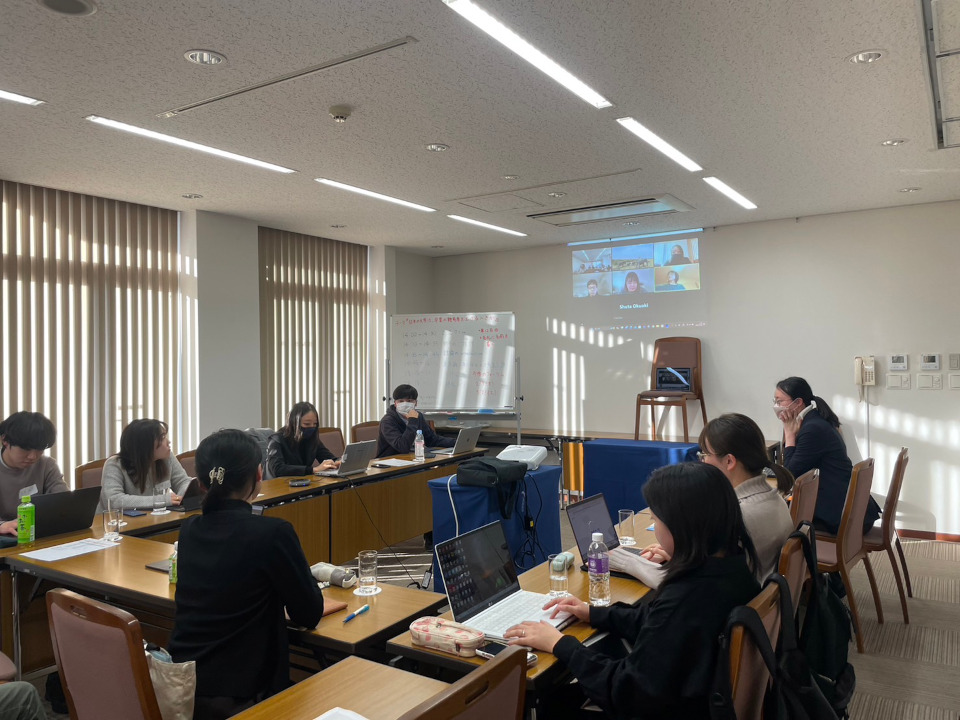- HOME
- Activities
- Forum List
- Forum Details
Janu.6.2024 KIP Forum "Should Japanese universities make graduation more difficult?"

Without lectures, the participants frankly discussed the pros and cons of making graduation more difficult at Japanese universities and examined ways to improve the way Japanese university students approach their studies.
【Background】
Japanese universities are often compared to foreign universities in terms of difficulty in graduation. While there are those who argue that graduation should be made more difficult due to the low standard of Japanese university students, it is also true that there are advantages to having more leeway in graduation requirements, such as the ability to devote oneself to club activities and use the time for non-academic human development and social studies. What should students learn at university, and how does this affect society?
【Group discussion and Ground discussion】
Those in favor of the proposal included: "Making graduation more difficult is the best way to make students study seriously" and "A large difference in motivation to study within the university is not a good environment for motivated students". The opponents of the proposal included: "If graduation becomes more difficult and a student stay in school, even if it is due to a part-time job to cover living expenses, the scholarship will be stopped and the student will not be able to attend school" and "Many skills required in today's society have nothing to do with academics". Later, opponents proposed alternatives, such as "requiring students to submit a statement of reasons for their ambitions when registering for a course" and "making the quantity and quality of comments in discussions the subject of evaluation". However, realizing that these will make it more difficult for students to graduate in the end, the topic shifted to the significance of the university's existence. Here, the participants mentioned that "by linking academics to social contribution, students can obtain funding for academic research" and "to begin with, the job-hunting schedule prevents students from concentrating on their studies, and it can be said that the social system is more problematic".
【Personal Opinion】
Although divided in favor and opposition, both sides shared the same sense of crisis over the fact that academic significance is fading away in Japanese universities. The discussion led to the realization that universities should provide content that fuels intellectual curiosity and that this content should be unique to each university. On the other hand, making changes to the way universities are run entails various risks. As one of the opposing opinions stated, if students who borrow money on scholarship cannot attend college because they cannot graduate, their final educational background will be that of a high school graduate, which will narrow the range of employment opportunities. We felt that careful consideration should be given not only to the method but also to the extent of such changes so that universities do not cater too much to a particular group of students.
Kana Matsuya, Rikkyo University, Contemporary Psychology, 3rd year


